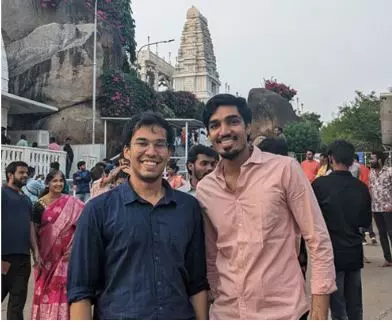Research on Ethical AI by IIIT-H Wins Award

Hyderabad: Controversy around Google's AI chatbot Gemini facing allegations of racial bias and historical inaccuracies highlighted the urgency for ethical AI development and a recent study by researchers from the International Institute of Information Technology - Hyderabad (IIIT-H) shed light on designing fair AI systems, emphasising proportional representation in decision-making.
The study, 'Proportional Aggregation of Preferences for Sequential Decision Making,' presented at the AAAI Conference on Artificial Intelligence, won the Outstanding Paper Award. Authors Shashwat Goel (IIIT-H), Nikhil Chandak (IIIT-H) and Dominik Peters (National Centre for Scientific Research - Paris), proposed a novel approach to address societal biases in AI.
Traditional AI models prioritise accuracy by aggregating preferences into a single decision, akin to a majoritarian voting rule. However, the team advocates for training separate models for diverse groups and employing proportional aggregation for fair decision-making.
To validate their method, experiments were conducted using the Moral Machine dataset and Californian election data, and results showcased improved fairness metrics without significant loss in utility, a press note by IIIT-H revealed.
The institute added that the team’s approach has immediate applications in a virtual democracy setting where decisions are automated based on models of the preferences of individual people, in making policy decisions of coalition governments, legal predictions and even in fair faculty hiring processes. In the latter, typically everyone in a department has very specific research interests and wants someone with similar interests to join for collaborative purposes.
“If the rules the researchers proposed are applied, then in every round of hiring, one can take into account those whose preferences were honoured so that eventually everyone can have a say in the hiring process,” the note explained.

